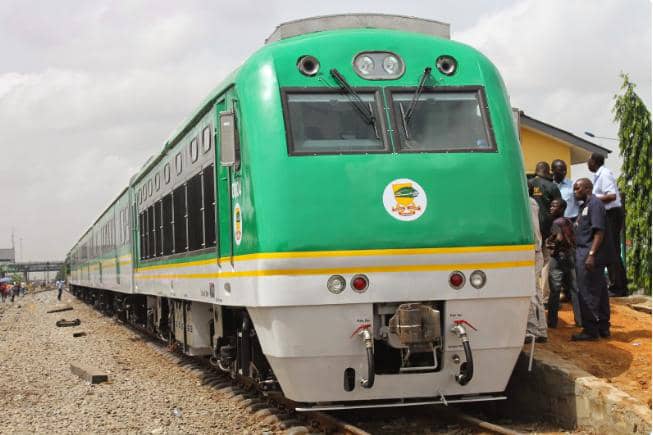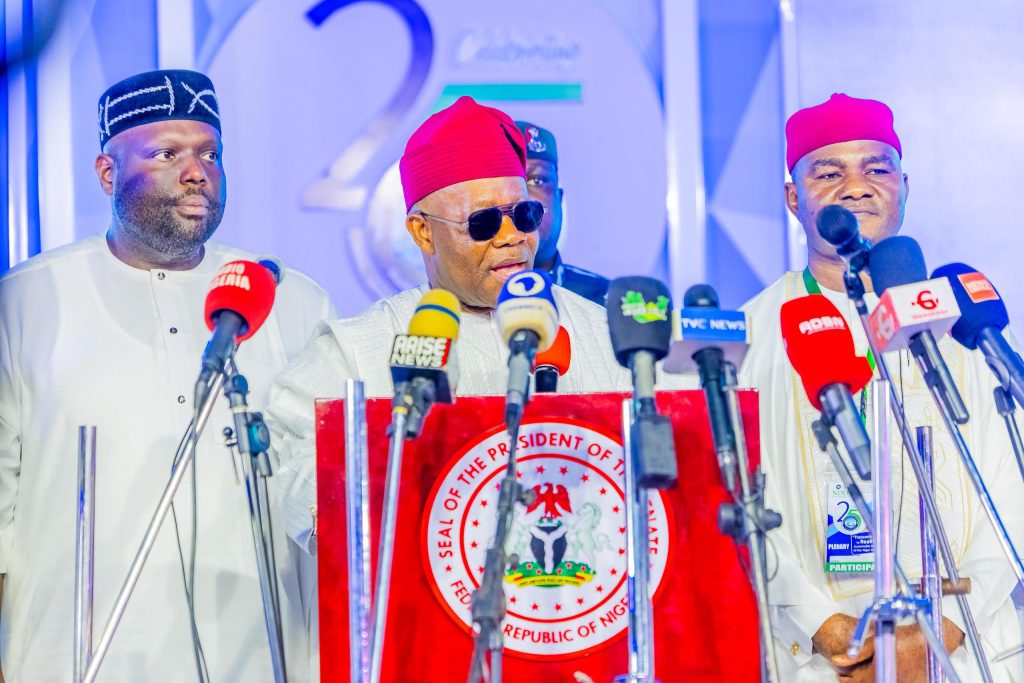Legal Affairs
CBN: Court stops releasing of further financial allocations to Rivers.
The Federal High Court in Abuja has issued a significant ruling on Wednesday, enjoining the Central Bank of Nigeria (CBN) from disbursing financial allocations to the Rivers State Government pending the passage of a lawful appropriation act by a duly constituted House of Assembly.
Justice Joyce Abdulmalik delivered the judgment in response to a suit filed by the Rivers State House of Assembly, led by Hon. Martins Amaewhule.
Abdulmalik declared that the presentation of the Rivers State 2024 Appropriation Bill by Governor Siminalayi Fubara to an improperly constituted four-member Assembly is null and void.
Pursuant to the court order, all financial allocations to Rivers have been temporarily suspended, pending the proper constitution and approval of the state’s budget by the legislative assembly.
“Until the House of Assembly approves and passes a legitimate appropriation bill, all state financial activities will remain suspended,” Abdulmalik stated.
According to the Diaspora Digital Media (DDM), the judicial decision reaffirms the importance of legislative oversight in ensuring fiscal responsibility and accountability in governance.
Besides, Justice James Omotosho of the same high court in Abuja also nullified the N800 billion budget passed by the Edison Ehie-led faction of the Rivers State House of Assembly and signed into law by Governor Fubara.
The court also upheld the suit filed by the Rivers State House of Assembly and Speaker Martin Amaewhule against Fubara, granting an injunction to prevent the governor from hindering the Assembly’s operations under Speaker Amaewhule’s leadership.
“The decision ensures that the governor cannot interfere with the Assembly’s functions, providing stability and continuity to the legislative process,” the SaharaReporters reported.
Earlier on December 13, 2023, amidst a prolonged political crisis and the demolition of the Assembly Complex in Rivers, Fubara presented the 2024 budget proposal of N800 billion to a faction of the State Assembly comprising five members, led by Edison Ehie.
The budget presentation was held at the Government House in Port Harcourt, necessitated by the state government’s demolition of the Assembly Complex and a court injunction restraining Martins Amaewhule.
Hon. Edison Ehie, alongside other lawmakers supporting Fubara, approved the budget estimates, which the governor subsequently signed into law.
The move, according to the governor, is designed to foster economic growth, promote inclusivity, and tackle socio-economic disparities within Rivers State.
CBN
The Central Bank of Nigeria (CBN) is the apex bank and primary regulator of the financial industry in Nigeria. It has a rich history spanning over six decades.
History of CBN
The bank was established on July 1, 1958, as the Bank of Nigeria. Its first governor was Sir John Hannah.
Functions of CBN
The apex bank formulates and implements monetary policy to maintain price stability and promote economic growth.
It manages the issuance and distribution of the Nigerian currency (Naira) and regulates and supervises commercial banks, microfinance banks, and other financial institutions.
Besides, CBN ensures the stability of the financial system and manages Nigeria’s foreign exchange and maintains external reserves.
Objectives of CBN
The objectives of the CBN include price stability, economic growth, financial stability, exchange rate stability , and efficient payment system.
Governance of CBN
The Governor is the chief executive officer while the Deputy Governors assist the governor in overseeing various departments.
The Board of Directors comprises the Governor, Deputy Governors, and non-executive directors.
Departments
The department of the CBN include Monetary Policy Department, Currency Operations Department, Banking Supervision Department, Financial Stability Department, Foreign Exchange Department, and Payment System Department.
Initiatives
Cashless Policy, Financial Inclusion Strategy, National Payment System Vision in 2020, Anchor Borrowers’ Programme (ABP) and Nigerian Sustainable Banking Principles (NBSP) are all CBN initiatives.
Regulatory Framework
The CBN is being regulated by the Banking Act, Central Bank of Nigeria Act, Financial Reporting Council Act, Money Laundering (Prohibition) Act, and Anti-Money Laundering/Combating the Financing of Terrorism (AML/CFT) regulations.
Challenges
It faces challenges like currency fluctuation, inflation, economic downturn, banking sector stability, and financial inclusion.
Recent Developments
The apex bank introduced the e-Naira (digital currency), implemented the Nigerian Payment System Vision in 2020, and reviewed the Banking Act.
It also established the Financial Ombudsman Institution and enhanced regulatory oversight.
CBN’s Monetary Policy Decisions
The CBN sets interest rates to control inflation and stimulate economic growth, and requires commercial banks to maintain a certain percentage of deposits as reserves.
Besides, the CBN operates the Open Market Operations (OMO) to buy or sell government securities to regulate liquidity. CBN manages Nigeria’s foreign exchange and maintains external reserves.
Notable Governors
Clement Isong (1967-1975), Adamu Ciroma (1975-1977), Ola Vincent (1977-1982), Abdulkadir Ahmed (2009-2014), Godwin Emefiele (2014-2024), and Olayemi Cardoso till present.
For Diaspora Digital Media Updates click on Whatsapp, or Telegram. For eyewitness accounts/ reports/ articles, write to: citizenreports@diasporadigitalmedia.com. Follow us on X (Fomerly Twitter) or Facebook












